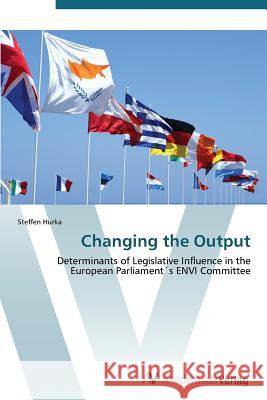Changing the Output » książka
Changing the Output
ISBN-13: 9783639387278 / Angielski / Miękka / 2012 / 88 str.
This study provides novel insights into the internal organization of the European Parliament (EP) by analyzing the logic of amendment success on the institutions committee level. Three research hypotheses on potential factors driving the success and failure of amendments at the committee stage are tested for the Committee on the Environment, Public Health and Food Safety (ENVI). Employing stratified random sampling, a dataset containing 550 amendments from 55 ENVI members was compiled and analyzed with multinomial multilevel regressions. The results suggest that a committee member's general ideological orientation in terms of "left vs. right" is not decisive for the member's prospects to change the committee output. Instead, it seems like ENVI members who uphold links to green interest groups play a greater role in the formulation of environmental policies than members who lack such interest group affiliations. Finally, the empirical evidence indicates that the rapporteurs position is only rarely challenged successfully by competing amendments. However, instead of pushing through their own position at any cost, rapporteurs are often willing to accept compromises"
This study provides novel insights into the internal organization of the European Parliament (EP) by analyzing the logic of amendment success on the institution´s committee level. Three research hypotheses on potential factors driving the success and failure of amendments at the committee stage are tested for the Committee on the Environment, Public Health and Food Safety (ENVI). Employing stratified random sampling, a dataset containing 550 amendments from 55 ENVI members was compiled and analyzed with multinomial multilevel regressions. The results suggest that a committee members general ideological orientation in terms of "left vs. right" is not decisive for the members prospects to change the committee output. Instead, it seems like ENVI members who uphold links to green interest groups play a greater role in the formulation of environmental policies than members who lack such interest group affiliations. Finally, the empirical evidence indicates that the rapporteur´s position is only rarely challenged successfully by competing amendments. However, instead of pushing through their own position at any cost, rapporteurs are often willing to accept compromises











